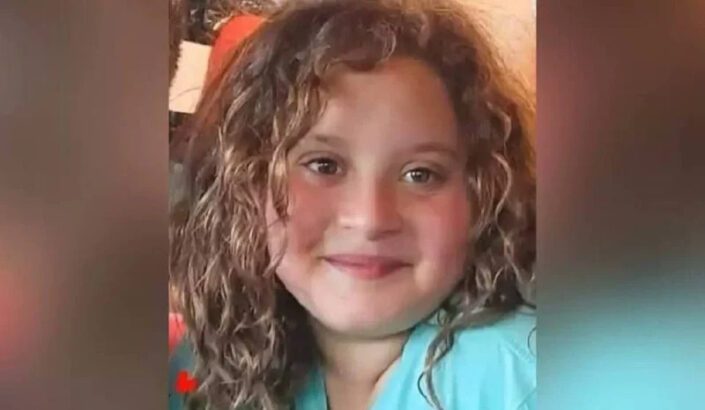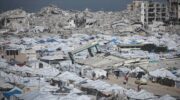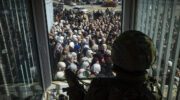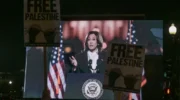Israeli eyewitnesses have exposed Israel for misleading the world about the killings of 12-year-old Liel Hetzroni, her family, and her neighbors. (This is just the latest correction to Israel’s long string of anti-Hamas propaganda)
By Max Blumenthal, reposted from Grayzone
In a desperate bid for international sympathy, the Israeli government has sought to stir outrage over the killing of a 12-year-old girl during the Hamas-led attack on southern Israel on October 7.
“This little girl’s body was burned so badly that it took forensic archeologists more than six weeks to identify her,” the Israeli Foreign Ministry declared on its official Twitter/X account. “All that remains of 12 year old Liel Hetzroni is ash and bone fragments. May her memory be a blessing.”
This little girl’s body was burned so badly that it look forensic archeologists more than six weeks to identify her.
All that remains of 12 year old Liel Hetzroni is ash and bone fragments.
May her memory be a blessing.@UN_Women #NoExcuse #HamasMassacre pic.twitter.com/rPGOjG26l3
— Israel ישראל (@Israel) November 24, 2023
Aviva Klompas, a former speechwriter for Israel’s United Nations mission and one of the country’s top English language social media propagandists, claimed on Twitter/X, “The terrorists massacred all of [the Hetzroni’s], then torched the building.”
Naftali Bennett, the former Israeli Prime Minister, chimed in to proclaim that “Liel Hetzroni of Kibbutz Beeri was murdered in her home by Hamas monsters… We’re fighting the most just war: to ensure this can never happen again.”
Liel Hetzroni was among the noncombatants killed in Kibbutz Be’eri when the small southern Israeli community was momentarily taken over by Hamas militants seeking captives to spur a prisoner exchange. During the standoff that ensued, she was killed instantly alongside twin brother, great-aunt and several other residents of Be’eri.
However, the 12-year-old Hetzroni was not slain by Hamas. According to new testimony by an Israeli eyewitness to the girl’s death, she was killed by an Israeli tank shell alongside several neighbors.
The revelation of Hetzroni’s friendly fire death came as the government of Prime Minister Benjamin Netanhahu attempts to shut down the Israeli newspaper Haaretz for reporting that Israeli Apache helicopters killed Israeli citizens fleeing the Nova electronic music festival on October 7. Haaretz’s reporting confirmed a viral Grayzone investigation which highlighted disclosures by Israeli helicopter pilots and security officials of friendly fire orders throughout the fateful day.
One came from a member of the security team for Kibbutz Be’eri, who told Haaretz that “the commanders in the field made difficult decisions – including shelling houses on their occupants in order to eliminate the terrorists along with the hostages.”
A tank battalion commander recalled receiving the same orders when he arrived on the scene, stating in a video interview, “I arrived in Be’eri to see Brig. Gen. Barak Hiram and the first thing he asks me to do is to fire a shell into a house [where Hamas members were sheltering].”
The decision to use heavy weapons on the small homes of Be’eri wound up costing many Israeli lives. Among them was the girl whose death has been weaponized to justify Israel’s brutal assault on Gaza. And for the first time, an eyewitness to the attack has come forward with the uncomfortable truth about the killing.
“when those two shells hit, [Liel] stopped screaming”
Yasmin Porat was among the Israelis taken hostage by Hamas militants in Be’eri on October 7. She had fled the Nova electronic music festival and sought shelter in the community when the militants arrived. In a November 15 interview with the Israeli national broadcaster, Kan News, Porat provided exclusive details of the standoff which badly undercut her government’s official narrative.
Under the mistaken impression that they were surrounded by Israeli troops, who were actually largely absent at the time and in a discombobulated state, the Hamas gunmen sent hostages outside the home and phoned the Israeli police in an apparent attempt to negotiate their own exit.
“You see that most of the kidnappings occurred in the morning, at 10, 11, 12,” Porat said. “By 3 [in the afternoon], every [Israeli] citizen thought the army was already everywhere. [The Hamas militants] could have taken us out and back [to Gaza] ten times. But they didn’t believe that was the situation, so they asked for the police.”
When the Israeli special forces finally arrived on the scene, Porat said, a “ceasefire” ensued between Hamas and Israeli forces, and her own captor decided to surrender. To ensure his own safety, he stripped himself naked and used her as a human shield as he made his way toward the Israeli soldiers.
After Porat was freed and her captor surrendered, she said 14 Israelis remained hostage under the guard of 39 Hamas militants. Among those left behind, she said, were twin girls, Liel and Yanai Hatroni, along with their great-aunt and guardian, Ayala Hatroni.
“I sat there with the commander of the unit,” Porat recalled, “and I described to him what the house looks like, and where the terrorists are, and where the hostages are. I actually drew it for him: ‘Look, here, on the lawn there are four hostages that are lying this way on the lawn. Here are two that are lying under the terrace. And in the living room there is a woman lying like this, and a woman lying like this.”
Porat explained, “I told [the Israeli commander] about the twins (Yanai and Liel Hatzroni) and their great-aunt (Ayala), I didn’t see them. You know what, when I left, they were the only ones I didn’t see. I heard Liel the whole time, so I know for certain that they were there.. I tried to explain to [the commander] that from somewhere near the kitchen, that’s where I heard the screams coming from. I didn’t see her, but I heard her, and I heard where the screams were coming from. I tried to explain to them where all the hostages were.”
Underscoring the shoddy Israeli intelligence that made the October 7 Hamas operation possible, Porat said the soldiers did not believe that so many militants could be inside one home, or that such a large force could have penetrated the high-tech siege walls Israel had constructed around Gaza. “The first time I told [the Israeli special forces] that there are about 40 terrorists, they told me, ‘It can’t be. It seems like you’re exaggerating’… I told them, ‘There’s more of them than you.’ They didn’t believe me! It was still the naiveté of our army, as well.”
By 4 PM, a gun battle began to rage between the militants inside the home and the Israeli special forces stationed across the street. After failing to dislodge the Hamas fighters, the Israelis called in a tank at 7:30 PM.
Porat described a sense of panic as she watched the tank trundle into the small community: “I thought to myself, ‘Why are they shooting tank shells into the house?’ And I asked one of the people that was with me, “Why are they shooting?’ So they explained to me that it was to break the walls, in order to help cleanse the house.”
From across the street, Porat heard two loud explosions. The tank had fired a couple of shells into the home. Laying down outside the house was her partner, Tal, another man named Tal, and the couple who owned the house, Adi and Hadas Dagan. There were also the 12-year-old twins, Liel and Yanai Hatsroni, along with their great-aunt.
When the dust cleared, only Hadas Dagan emerged from the house alive.
Porat said Dagan later told her, “‘Yasmin, when the two big booms hit, I felt like I flew in the air… It took me 2-3 minutes to open my eyes, I didn’t feel my body. I was completely paralyzed. When I opened my eyes, I saw that my Adi [Dagan] is dying… Your Tal also stopped moving at that point.”
Dagan confirmed that the tank shells killed Liel Hatsroni: “‘The girl did not stop screaming for all those hours,” she told Porat, referring to Liel. “She didn’t stop screaming… [but] when those two shells hit, [Liel] stopped screaming. There was silence then.”
Porat concluded, “So what can you take away from that? That after that very massive incident, the shooting, which concluded with two shells, that is pretty much when everyone died.”
No executions by Hamas
Dagan emphasized to Porat that none of the hostages had been intentionally killed by the Hamas fighters. “There were no executions, or anything like that. At least not the people with her,” Porat said.
In a separate interview on October 15, Porat insisted the Palestinian militants “did not abuse us. They treated us very humanely.”
It is impossible to know if the standoff between Israeli and Hamas forces at the Dagan home could have been resolved without bloodshed. But it is clear that the Israeli decision to shell the home with tanks wound up killing almost everyone inside, including the child who has become a centerpiece of Israel’s international anti-Hamas propaganda campaign. All the Israelis left behind, Porat said, was “a house full of corpses.”
RELATED;
- Israel has lost control of the narrative – October 7 truths coming out
- Essential facts and stats about the Hamas-Gaza-Israel war
- What media reports fail to tell you about October 7
- More Palestinians killed in past 34 days than in the past 22 years combined
- US media say Israel is retaliating. The facts show the opposite
- US poised to give Israel $18 billion in aid this year
- Israeli communities near Gaza are on stolen land, former owners consigned to the Gaza ghetto





